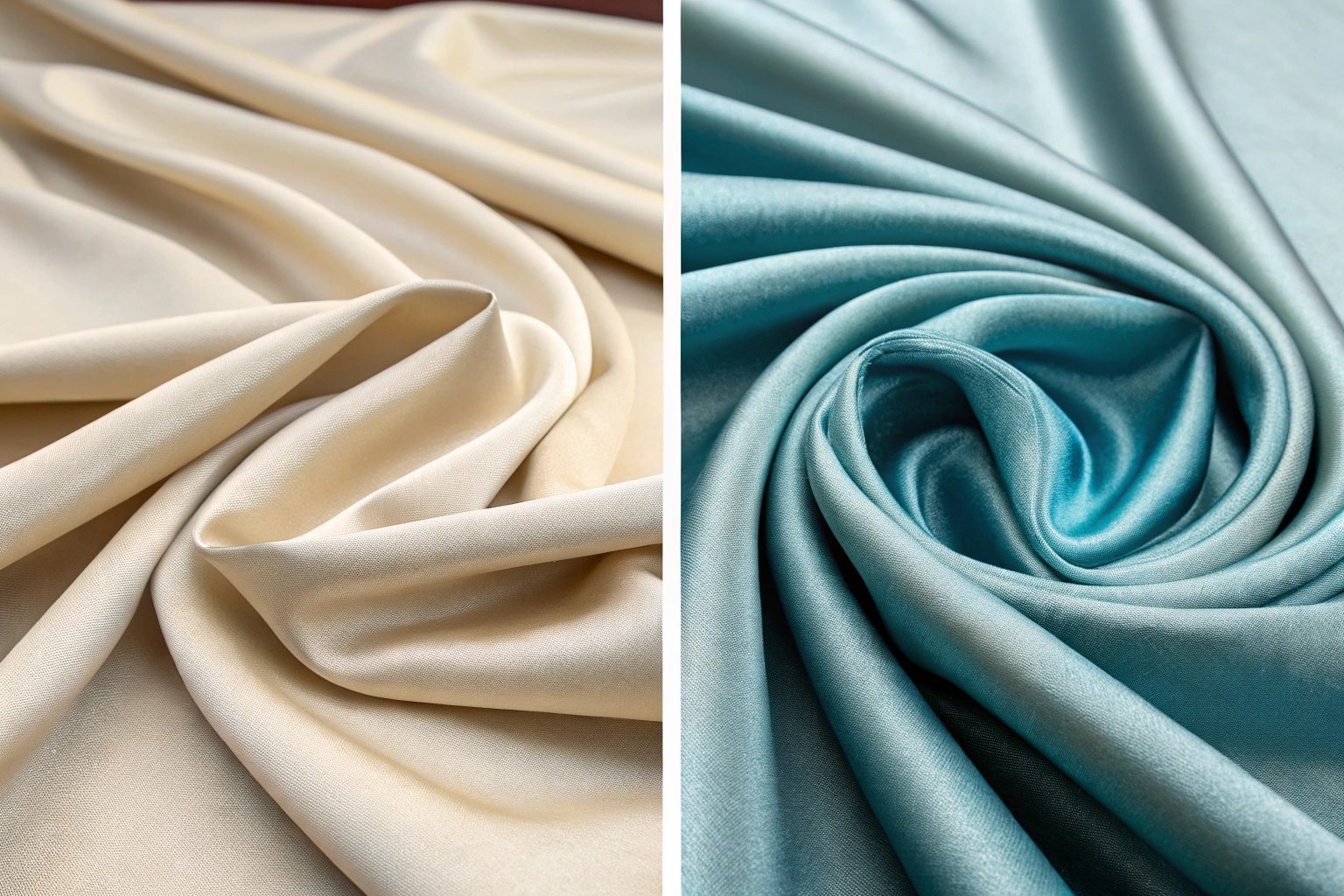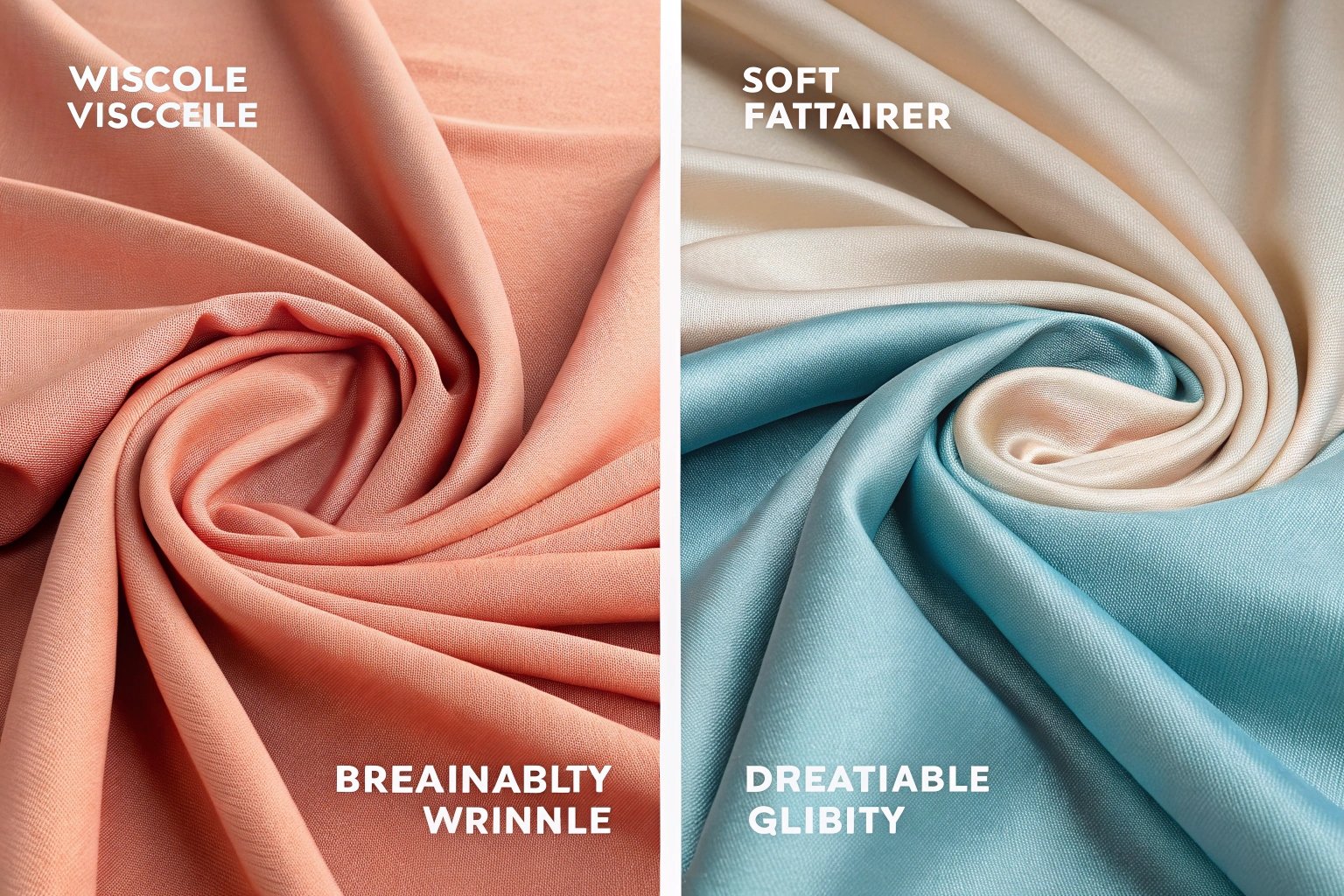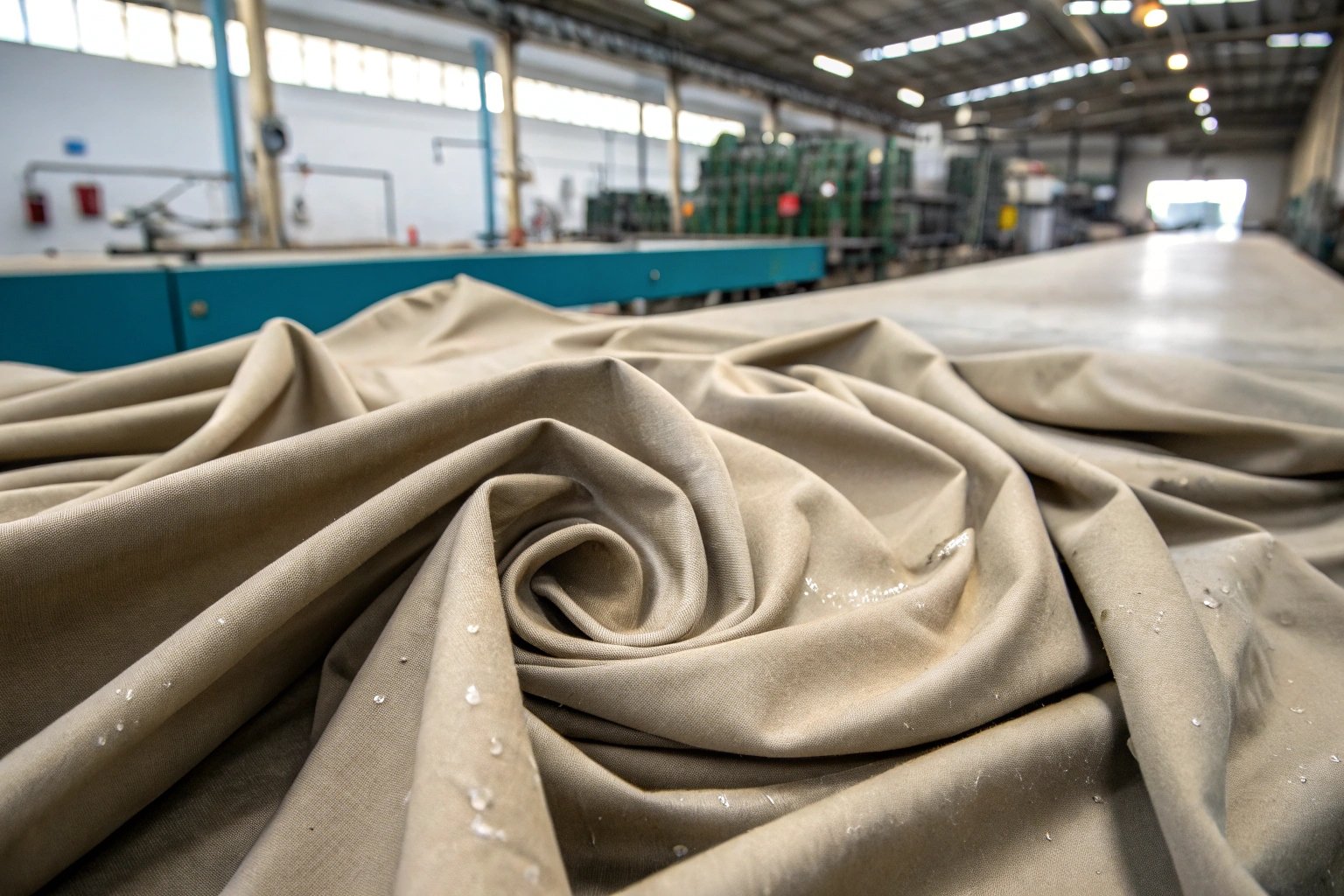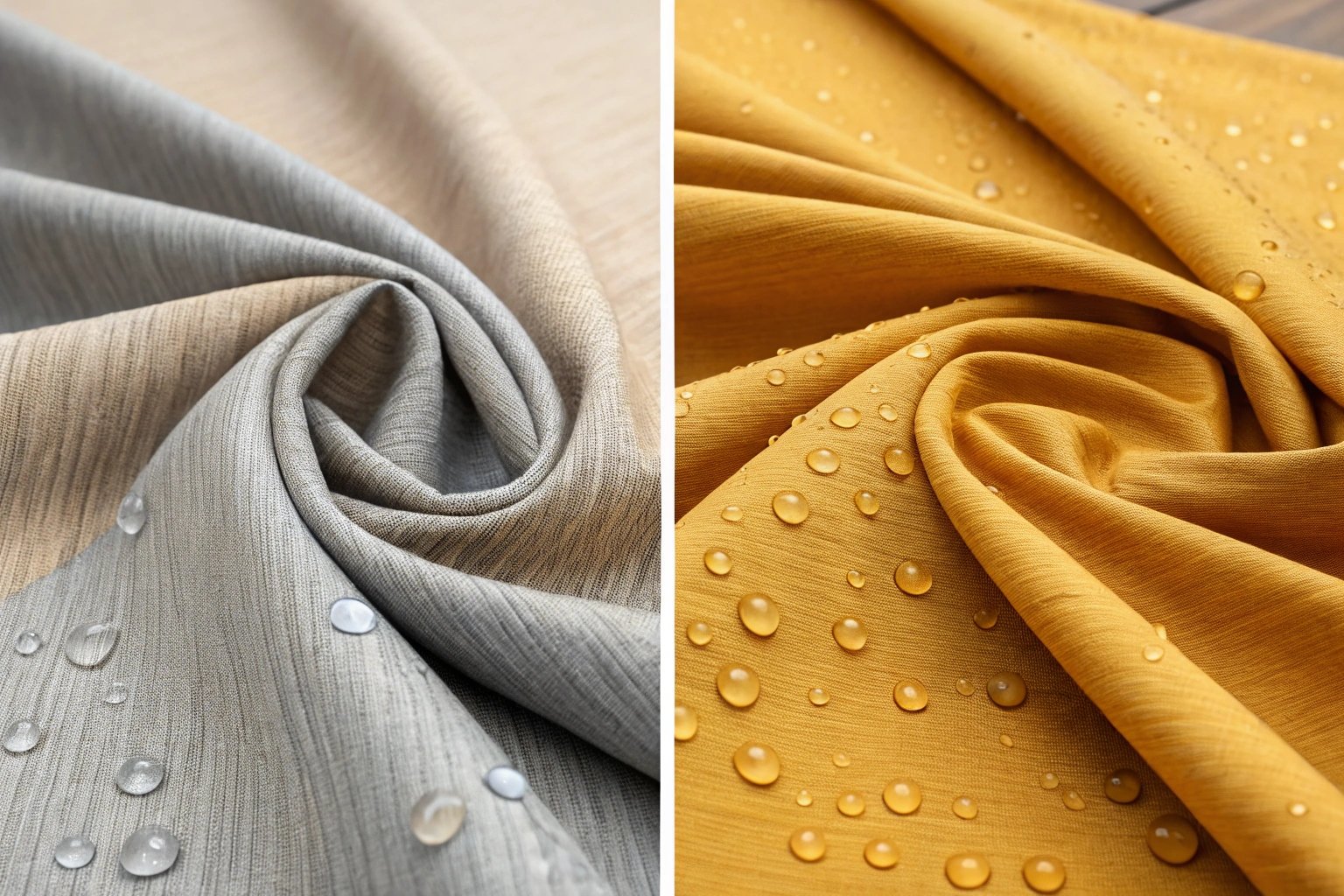Viscose and polyester are two popular synthetic fabrics, each with distinct characteristics. But which one is better? Let’s break down the differences and help you decide which fabric suits your needs best.

Viscose and polyester offer unique qualities, but the right choice depends on what you’re looking for in terms of comfort, durability, and functionality.
Understanding the differences between viscose and polyester can help you make the best decision when choosing fabrics for clothing or home textiles. Let’s dive into the benefits and disadvantages of both materials, and which one is more suitable for your lifestyle.
Which material is better, viscose or polyester?
The question of which material is better between viscose and polyester depends largely on your specific needs. Viscose is often chosen for its softness and breathability, while polyester is known for its durability and easy maintenance.
Viscose is softer and more breathable, offering a luxurious feel, but it can be less durable. Polyester, on the other hand, is more durable, resistant to wrinkles, and easy to care for.

Viscose is made from wood pulp or plant fibers, making it a semi-synthetic fabric that feels soft, smooth, and is highly breathable. It’s often used in fashion for its drape and luxurious texture. However, viscose tends to lose its shape over time and can wrinkle easily, making it a less durable option compared to polyester.
Key Takeaway:
- Viscose: Softer, more breathable, but less durable.
- Polyester: Durable, wrinkle-resistant, but less breathable.
What are the disadvantages of viscose fabric?
While viscose has its advantages, it also comes with some drawbacks that may make it less suitable for certain uses.
Viscose is prone to wrinkling, can lose its shape after washing, and is less durable than polyester. It’s also more susceptible to damage from moisture.

One of the primary disadvantages of viscose is that it wrinkles easily, requiring regular ironing or steaming to keep it looking neat. Additionally, viscose tends to lose its shape when exposed to moisture or over time, which can lead to stretching or sagging. It’s also not as durable as polyester, meaning it can wear out faster and may not withstand frequent washing or heavy use.
Viscose can also be prone to shrinking and fading if not properly cared for, and it’s not as moisture-resistant as polyester. This means it can absorb sweat and moisture, which might lead to discomfort in hot or humid conditions.
What makes you sweat more, polyester or viscose?
When it comes to sweating, polyester tends to make you sweat more than viscose due to its lower breathability.
Polyester can trap heat and moisture close to your body, which makes it less breathable and more likely to cause sweating compared to viscose.

Polyester is made from synthetic fibers that don’t breathe as well as natural or semi-synthetic fabrics. As a result, polyester clothing tends to trap heat and moisture, leading to increased sweating. This is particularly noticeable during physical activity or in warmer climates.
Summary:
- Polyester: Traps heat and moisture, leading to more sweating.
- Viscose: More breathable, but still not as effective as natural fibers in moisture management.
Which is cooler, viscose or polyester?
When it comes to cooling properties, viscose is generally cooler than polyester due to its higher breathability and moisture-wicking properties.
Viscose is cooler than polyester because it’s more breathable and allows air to circulate, making it a better choice for hot weather.
Viscose, being a semi-synthetic fiber made from plant materials, has a natural breathability that polyester lacks. This allows for better air circulation, helping to keep the body cool in hot weather. Additionally, viscose is better at absorbing moisture, so it helps wick away sweat from your skin, keeping you feeling fresher for longer.
Polyester, being a synthetic material, doesn’t breathe as well. It traps heat and moisture, which can cause you to feel warmer and sweat more. This makes polyester a less ideal option for hot climates or intense physical activity compared to viscose.
Conclusion
When choosing between viscose and polyester, it comes down to your priorities. If you want something soft, breathable, and comfortable, viscose is the way to go, especially for warmer weather. However, if you prioritize durability, moisture resistance, and easy maintenance, polyester is the better choice. Both fabrics have their place in the world of textiles, and understanding their differences can help you select the best option for your needs.

